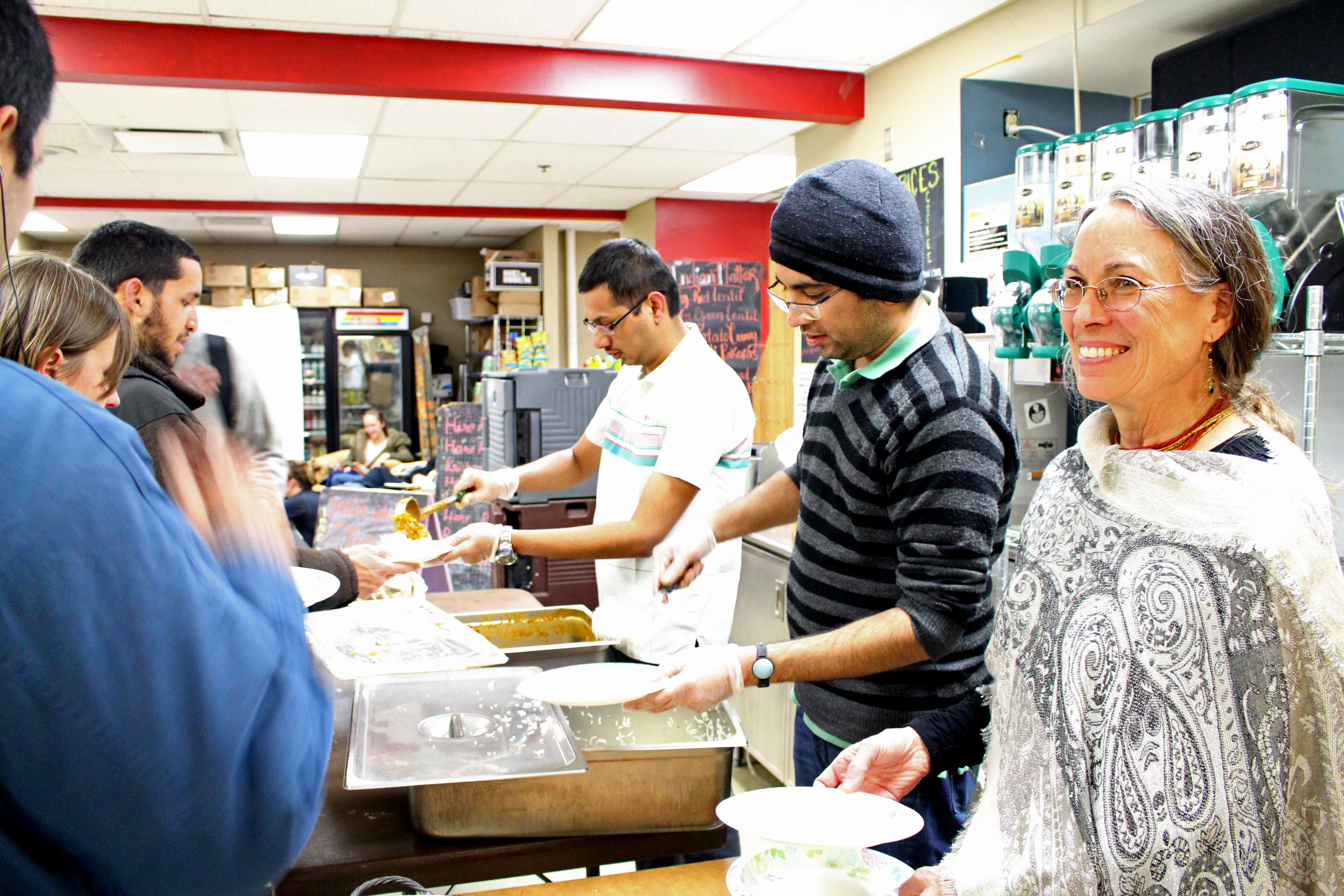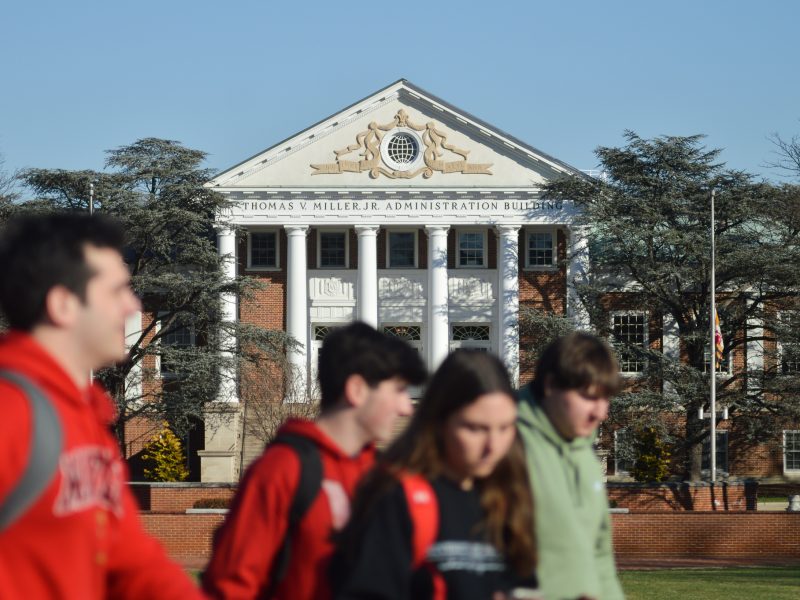From the looks of the crowded lobby, one might have thought TerpZone was the hottest place to be on a Thursday night. The line wove around tables and columns as a din filled the air. But the bowling and billiards weren’t the attraction. In fact, what brought nearly 200 students to Stamp Student Union on a Thursday night is something far tastier: Indian food.
For roughly a decade, the International Society for Krishna Consciousness, which has a temple in Potomac, has cooked pounds of rice and soup to feed the college kids who gather waiting in front of the Maryland Food Co-op.
Pamela Smith, who since 1972 has gone by her spiritual name, Padma, organizes the cooking effort and then happily dishes up plates for the hungry students who shuffle in.
“We started out as a cooking class … but then so many students were coming that we had to keep increasing until we couldn’t have the cooking class anymore,” she said.
Since then, the dinner has kept students coming for more, nourishing them both physically, and as Padma says, spiritually.
“This food is special is because it has been blessed and it’s spiritual food,” she says. “We feel that no only are we benefiting the students materially by giving them free food, but we’re also benefiting them spiritually.”
Every week, group of women volunteer several hours to cook enough food for 200 to 250 people in ISKCON’s commercial kitchen at their temple. Devotees bless the food before it is brought to the university.
Sophomore Lindsay Allen appreciated the message behind her dinner, even if she had to wait up to 20 minutes for it.
“I think it’s good that they’re giving out free food and it’s centered around something good — the group and what they believe in,” the community health major said.
Chinese and government and politics major Tabitha Anderson was no stranger to Indian food. She was impressed with the quantity during her first time trying it in Stamp.
“My dad cooks it a lot. He likes to cook ethnic food,” the sophomore said. “I like it. It’s a lot more than I expected. I thought it would just be a little bit.”
Week after week, students seem to appreciate hot food and a warm smile. Padma says some have even volunteered to help plate the dinners.
“One of the girls that is serving tonight is so friendly and so wonderful,” Padma said. “She’s not part of the club; she just loves serving, and she comes every single week.”
And it’s not just the students who benefit.
“It’s fulfilling to me to be able to have the opportunity to meet some of these students,” Padma said. “It’s wonderful to see the students grow through their education and in their spiritual lives and then take that with them.”
For Utsav Jambusaria, who studies information science, the weekly dinner is a chance to enjoy the flavors of the country he left just six months ago.
“Miss home food, basically,” the graduate student from Mumbai said. “It’s pretty much like what we have back home.”
The food varies slightly from week to week, but it follows a similar formula: rice, a vegetable dish and a sweet, mushy dessert.
The bean or lentil soup, called dahl, is especially nutritious.
“It’s an Indian bean, which is very light and full of protein, because all of our meals are vegetarian,” Padma said. “We serve halava, which is a dessert, and the kids just love it.”
It’s a favorite of Amy Johnson, a senior psychology major.
“It’s delicious and it’s sweet and it’s warm and it’s perfect,” she said. “When you get seconds when the line is shorter, you can get whatever you want, so I always just get the sweet stuff.”
Around the room, students eagerly slurped down the soft yellow mush made of milk, butter, semolina and fruit flavoring.
“Today’s dessert was the same they had last week, but I didn’t have any issue with that — I love it,” said Niraj Palsule, a public policy graduate student who came from India almost five years ago.
ISKCON serves Indian food because the group’s founder, guru A.C. Bhaktivedanta Swami Prabhupāda, came from the country and introduced them to the tasty and healthy cuisine.
“But we’re not restricted,” Padma says. “Sometimes we could do Mexican or we could do noodles or spaghetti, but Indian food is nutritious … and it’s also easy to make in big quantities.”
Many students stay for a spiritual discussion after the meal or take part in the meditation that begins as the food is being served. Others just enjoy the chance to try new flavors and catch up with friends.
Padma smiled as they began to clean up. Tonight, every drop of soup and grain of rice was served.



